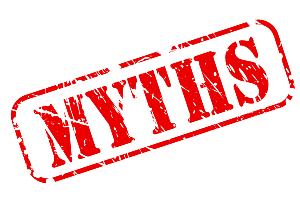
4 Myths About Florida Criminal Charges
The general knowledge that people have about criminal law tends to come from popular television shows and movies. While the information is excellent for the big screen, it gives viewers myths about criminal law, and when someone is being convicted of a crime, these myths can be kinks in their criminal law case.
Misconceptions about criminal charges in Florida can influence people to make the wrong choices, jeopardizing their freedom and causing added stresses that could have been avoided.
4 Myths About Florida Criminal Charges
Consulting with a criminal defense attorney in Florida is the best way to ensure you build a solid case. The following common myths will provide insights as to what is myth and what is fact:
Myth 1: Remaining Silent Means No Further Questioning
Although the U.S. Constitution allows those arrested the right to remain silent, law enforcement still has the right to ask you questions. Just because you have chosen to invoke your right to remain silent, law enforcement are trained in interrogation methods to get information out of you.
Myth 2: If Miranda Rights Are Not Read, Your Case Is Dismissed
This myth widely stems from television shows and couldn’t be further from the truth in Florida. Although law enforcement must read you the Miranda rights and acknowledge that you understand your rights, it does not automatically mean that if they are not read to you, your case is dismissed. It would mean that anything you did say before acknowledging your Miranda rights would be inadmissible in court.
Making it clear to law enforcement that you invoke your right to counsel and you will not answer any more questions until counsel is present can be the only way that they stop interrogating you.
Myth 3: If You Do Not Testify, Then You Are Presumed Guilty
When you have been accused of a crime that you did not commit, it can be your first instinct to want to tell everyone that you are innocent. However, every criminal case has unique circumstances as to whether or not the defendant should testify. Prosecutors can be tough, and in cross-examination, their only job is to discredit you and make it look like you are guilty.
Just because you do not testify, it does not mean the jury will assume you are guilty. Jurors must base their decisions on the facts and evidence of the case and not on their personal opinions about you. Trust that your criminal defense team will create the best strategies for your case and show the jury the best perception of you.
Myth 4: An Appeal Will Overturn a Criminal Conviction
Anyone can appeal their criminal conviction or sentence under Florida criminal law. However, cases are rarely ever overturned because higher courts do not typically overturn decisions from lower courts. There have been successful cases, but every situation and criminal case is different.
There are many laws regarding overturning a criminal conviction. The best way to understand possible scenarios for your case is to work closely with your defense team and let them explain to you how the appeal process works in Florida.
Contact a Skilled Criminal Defense Attorney
If you have been charged with a crime in Florida and need a strong defense team, our attorneys will help you no matter what type of charges you face. Attorneys at Umansky Law Firm are dedicated to helping defendants fight for their rights and their freedom. With over 100 years of combined legal experience, our team knows what it takes to build an impermeable defense. Contact our office for a free consultation. Call us today or fill out our contact form.


